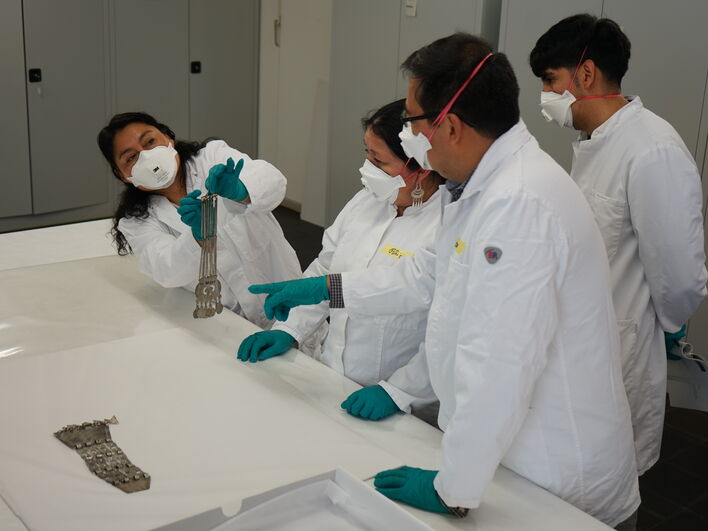The Ethnologisches Museum is home to collections from the Indigenous Mapuche community, who dwell primarily in the region that is today Chile. In a cooperation project with representatives of the Mapuche, the museum aims to determine the significance of the collections in the present day.

A violent history
In the 19th century, Chile and Argentina waged a brutal military conquest of the region inhabited by the Mapuche. What’s more, the Chilean government enlisted European – in particular German – settlers to develop infrastructure in the country’s southern region. In the process, the colonists and occupying military forces seized Mapuche cultural property. The majority of the Mapuche collections of the Ethnologisches Museum were acquired in the decades following the occupation of the territory. The circumstances surrounding the acquisition of the various objects are wide-ranging – from trades and purchases to grave robbery – and in many cases have gone undocumented. The approximately 600 objects in the Ethnologisches Museum’s collection include silver jewellery, riding equipment, clothing, and sensitive ritual objects.
Collaborative work with the Mapuche
In May 2025, five representatives of the Mapuche came to Berlin: an anthropologist, a weaver, a silversmith, a machi – a Mapuche spiritual leader – and her assistant for spiritual support. The aim of the cooperation project was to find out how the Mapuche perceive and understand the collections with their knowledge of (im)material culture in the present day.
The Mapuche delegation’s visit to the Museum was a valuable opportunity for knowledge exchange and direct contact with the objects. For the Mapuche, however, it also meant confronting the painful history of expropriation and colonisation of their territory. The objects contain information about their origin, use, techniques, and spiritual dimension – information that is largely missing from museum documentation but which the Mapuche can decipher, as their material culture is still alive and present in the participants. The Berlin collection enables the reconstruction and revival of complex Mapuche knowledge.
Projekt Key Info
Region: Chile
Community: Mapuche
Cooperation partners: Nicolás Valenzuela Quintupil (anthropologist),
Antonio Chihuaicura Chihuaicura (Mapudungun teacher (language of the Mapuche), rutrafe (silversmith)), María Elena Huentuleo Quechupan (gürekafe (weaver)), Patricia Huinca (machi, gürekafe (weaver)), Gladis Sonia Huinca Blanco (zugumachife (spriritual support of the machi))
Project management: Stefanie Schien
Research: Lena Steffens (associated scientist), Carolina Bayer (collections management) Mira Dallige-Smith, Sebastian Kolberg, Peter Stauffer (conservation)
Project funding: Ethnologisches Museum (The Collaborative Museum)
Project duration: 11/2024 – 06/2025